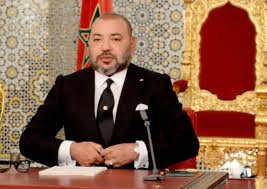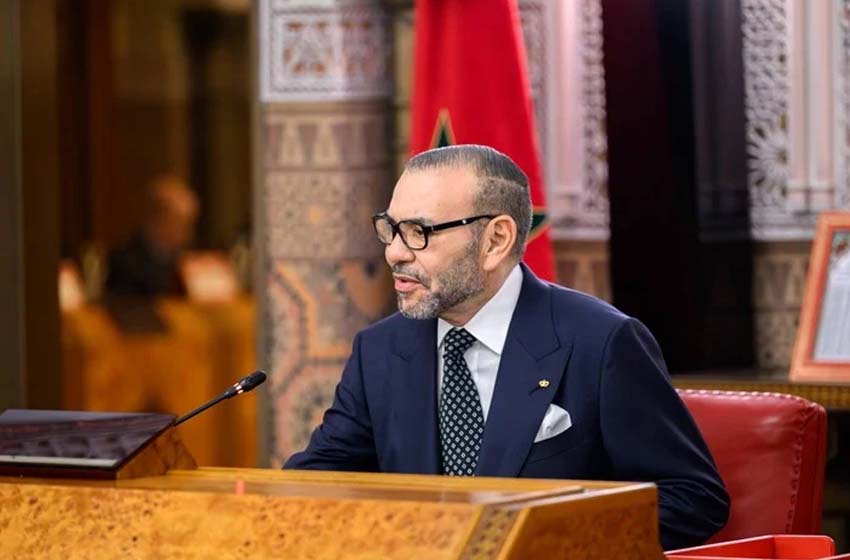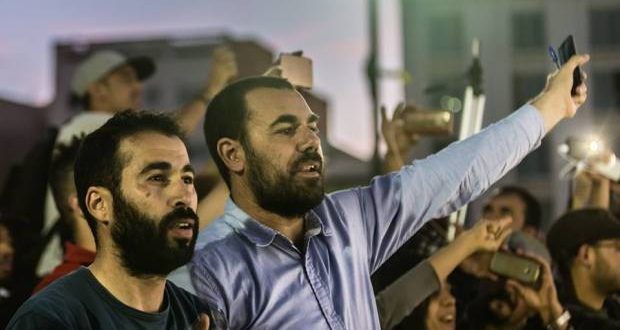 King Mohammed VI has warned that the continuing Israeli practices in violation of international legitimacy and international humanitarian law in the occupied Palestinian territories fuel tension, violence, instability and sow the seeds of religious conflict and hatred.
King Mohammed VI has warned that the continuing Israeli practices in violation of international legitimacy and international humanitarian law in the occupied Palestinian territories fuel tension, violence, instability and sow the seeds of religious conflict and hatred.
These Israeli practices include further settlement activities in the West Bank and East Jerusalem, depriving Palestinians of a dignified life, systematic incursions into the al-Aqsa Mosque compound and other practices aimed at establishing new facts on the ground, King Mohammed VI said.
The Monarch’s remarks came in a message to the Chairman of the Committee on the Exercise of the Inalienable Rights of the Palestinian People, Cheikh Niang on the occasion of the International Day of Solidarity with the Palestinian People, celebrated on November 29.
“Not only does this situation pose a real threat to the chances for peace, but it is also leading the region towards greater tension, violence and instability, prompting forebodings of a future of religious conflict and hatred,” the Monarch said.
King Mohammed VI deplored that in recent years, successive crises in the Middle East have deflected attention from the Palestinian question. “The settlement of the Palestinian problem is the backbone of regional stability. Therefore, I wish to insist on the need to put this question back at the center of international priorities, and to refrain from giving in to the fait accompli, which serves no one,” the Monarch pointed out.
“It is common knowledge that the Israeli-Palestinian conflict is essentially a political dispute. No other approach, however important, may provide an alternative to a comprehensive, equitable political solution that is consistent with international legitimacy resolutions and the Arab Peace Initiative,” he said.
The King who reiterated Morocco’s immutable position and unwavering support for the Palestinians in their endeavors to achieve their just, legitimate rights and establish their independent State along the lines of 4 June 1967, with East Jerusalem as its capital, insisted that the Kingdom endorses the two-State solution, as does the international community. It is the most appropriate strategic option likely to lead to a lasting and just solution to the conflict, he said. “The two-State solution remains the basis for ending the Palestinian-Israeli conflict and achieving comprehensive peace in the Middle East.”
The Monarch warned that any effort to revive the peace process would fail to achieve its objectives unless an end is put to the settlement policy in the occupied Palestinian territories.
“In this regard, I wish to reiterate my call to the Security Council and all members of the international community to act swiftly to safeguard the legal and historical status of the occupied Palestinian territories, and to implement UN resolution 2334/2016 which calls for ceasing settlement activities and which considers that settlements have no legal validity.”
Dealing with East Jerusalem, the King reiterated that Morocco considers East Jerusalem part of the Palestinian territories occupied in 1967 and the capital of the Palestinian State. “Therefore, this is one of the final status issues which must be resolved through negotiations between the Israeli and Palestinian sides. It is also a critical part in the conflict in the entire Middle East and a core element of the political solution in any settlement between the parties,” he stated further.
The Monarch added that, as Chairman of the al-Quds Committee, he has been calling for the unity and inviolability of al-Quds al-Sharif to be safeguarded and stressed the spiritual significance and special vocation of Jerusalem as a city of peace. He recalled that this position was reiterated in the ‘Appeal for Jerusalem’, which he signed on 30 March 2019 with His Holiness Pope Francis during his visit to Rabat.
“Together we stressed the need to preserve the Holy City as a common heritage of humanity, given that it is a meeting place, a symbol of peaceful coexistence between the followers of the three monotheistic faiths and a center for upholding the values of mutual respect and dialogue.”
“In keeping with that conviction, I have rejected any unilateral measures that affect Jerusalem or undermine the symbolic significance of the city, or its legal, cultural and religious status. We consider any such measures not only to be null and void, but also contrary to Security Council resolutions 476 and 478,” King Mohammed VI stated.


